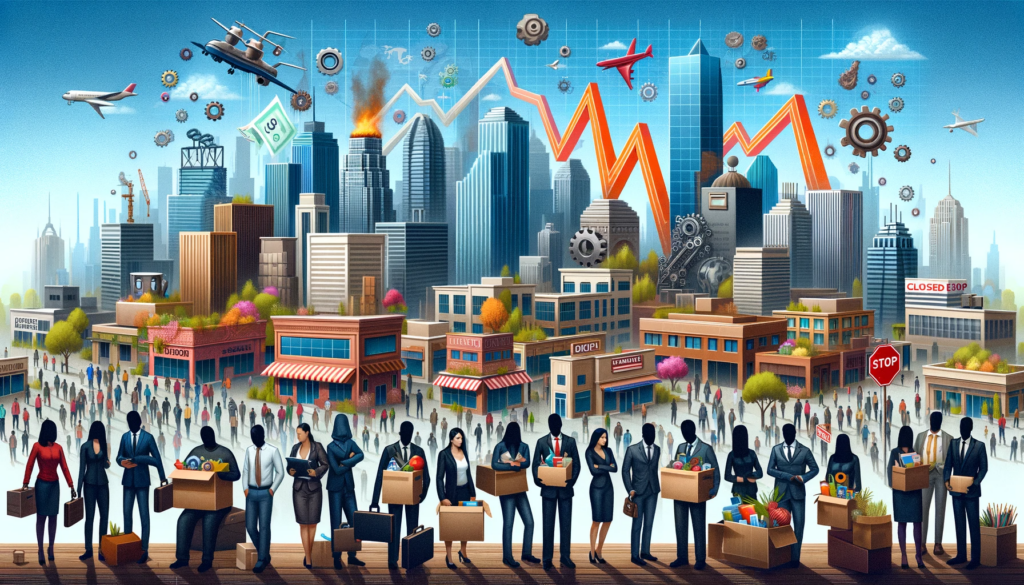The Economic Impact of Layoffs: A Macro Perspective
In today’s ever-evolving job market, layoffs are an unfortunate reality that workers and businesses must face. When a company decides to downsize or restructure, it often leads to job cuts, which can have far-reaching consequences beyond the immediate workforce reduction. This article delves into the macroeconomic perspective of layoffs and explores their impact on the economy, job market, and the lives of affected individuals.

Understanding the Layoff Scenario
Layoffs, often referred to as job separations or job displacement, occur when employees are let go by their employers for various reasons, including changes in business strategy, technological advancements, or economic downturns. This reduction in the labor force can have direct and indirect effects on a nation’s economy.
The Immediate Effects: Unemployment and Economic Downturn
One of the most apparent consequences of layoffs is the surge in unemployment. As more workers lose their jobs, the unemployment rate rises, which, in turn, can lead to a slowdown in economic growth. This initial shock to the labor market can have dire consequences, not only for laid-off workers but for society as a whole.
The Role of Unemployment Benefits and Job Security
During times of mass layoffs, unemployment benefits become a lifeline for laid-off employees. Generous unemployment insurance can help mitigate the financial hardship faced by workers, providing a safety net as they search for new employment opportunities. Additionally, job security becomes a paramount concern for those still employed, as the fear of layoffs can affect their job performance and psychological health.
Long-Term Economic Consequences
The economic effects of layoffs extend beyond the immediate year following a job separation. Research has shown that laid-off workers often experience long-term earnings losses, as their skills may become outdated or they may struggle to find comparable job opportunities. This leads to a reduction in their human capital, impacting their earning prospects and overall economic well-being.
Spillover Effects and the Business Cycle
The impact of job cuts is not isolated to the company carrying out layoffs; it ripples throughout the local employment ecosystem. Layoffs can lead to spillover effects, affecting businesses in related industries or even the entire community. The business cycle can be heavily influenced by mass layoffs, as the reduction in consumer spending and confidence can further exacerbate economic downturns.
Educational Attainment and Skill Levels
The severity of the economic effects varies based on factors such as workers’ levels of education and skill sets. Workers with lower educational attainment and specific skill sets may face higher risks of losing their jobs during a layoff. Meanwhile, workers with high skill levels and labor productivity may have a better chance of finding new opportunities, countervailing some of the negative consequences.
Policy Considerations and Research Insights
To better understand the macroeconomic implications of layoffs, extensive empirical analysis has been conducted. Researchers use panel data and statistical methods to assess how layoffs impact the aggregate labor market and unemployment rates. The results of such research can inform policymakers about the potential consequences of workforce reductions and guide the development of social assistance programs.
Conclusion
In conclusion, layoffs are not merely isolated incidents but part of a complex economic web. They affect not only the workers who lose their jobs but also the broader labor market, unemployment rates, and economic growth. It is crucial for businesses and policymakers to consider the broader economic impact of layoffs and implement measures to mitigate their adverse effects. By doing so, we can create a more resilient and adaptable workforce that can withstand the challenges of a dynamic job market.
In an era where job security is uncertain, understanding the macroeconomic consequences of layoffs becomes vital for businesses and individuals alike. By recognizing the potential impact of layoffs, we can work towards building a more robust and resilient economy, even in the face of economic downturns and workforce reductions.
